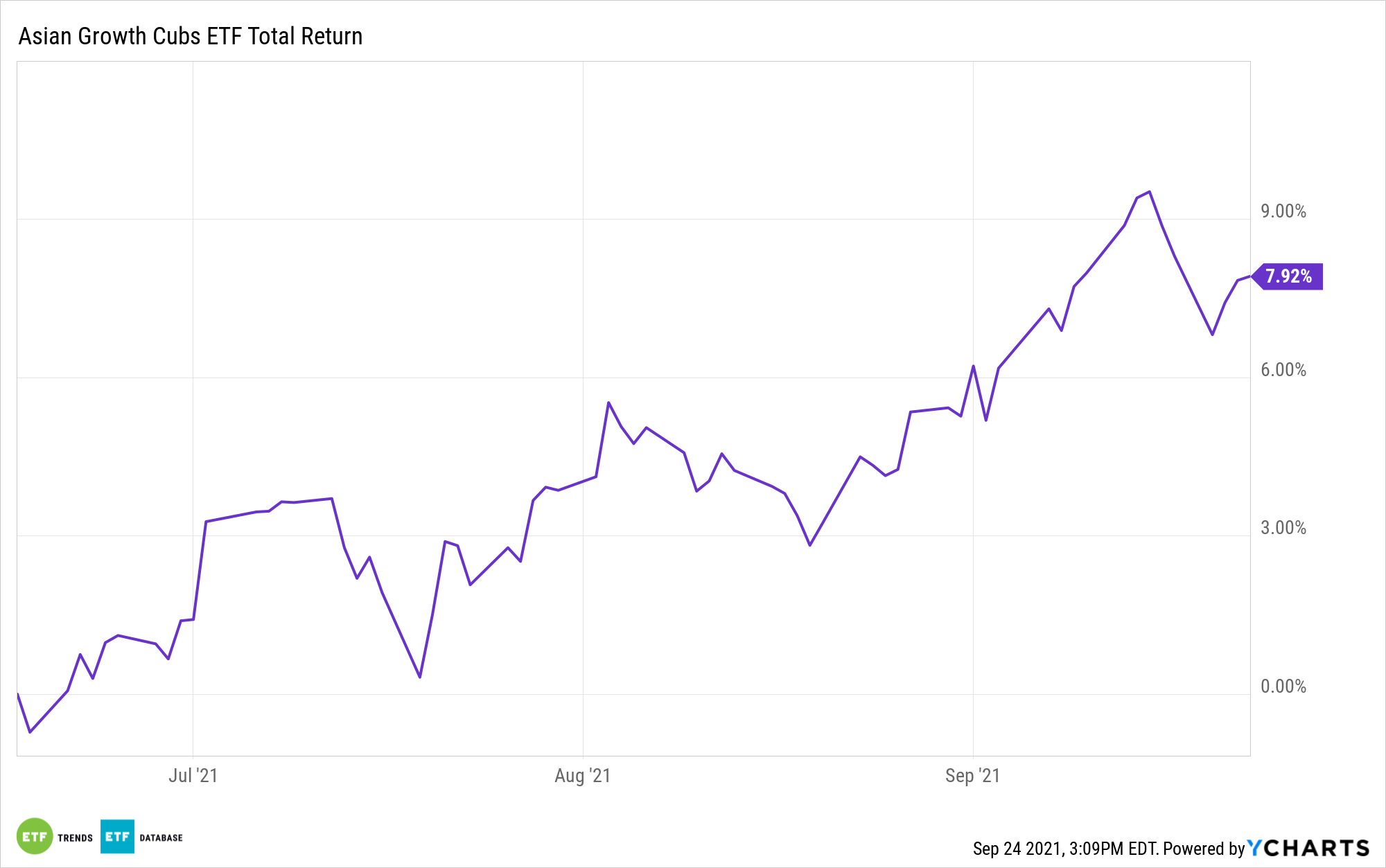As problems in China continue to make emerging market investors anxious, one can consider an exchange traded fund strategy that helps provide access to developing economies without exposure to the volatility in Chinese equities.
In the latest round of market-churning events from China, property developer Evergrande Group’s U.S. dollar bonds did not provide an interest payment by the Thursday deadline. Evergrande was scheduled to make $83.5 million in coupon payments by Sept. 23 on dollar bonds with a face value of $2.03 billion, the Wall Street Journal reports.
The company has a 30-day grace period before bondholders call a default on the debt. A missed payment would make this the largest-ever dollar-bond default by a company in Asia.
Chinese authorities have already warned local governments to prepare for the potential economic and social effects from Evergrande’s fallout, signaling Beijing’s reluctance to bail out the property developer. However, observers don’t anticipate that the Chinese government will allow the company to trigger a disorderly unraveling that would create widespread problems.
“This is a controlled, managed default that didn’t catch authorities or investors by surprise,” Thu Ha Chow, a senior credit strategist and portfolio manager at Loomis Sayles, told the WSJ. “It is not a ‘Lehman moment,’ but the market will be watching for any unintended consequences that may result.”
Investors who are loath to gain exposure to China but are still interested in the growth story of emerging Asian economies can look to alternative ETF strategies. For example, the recently launched Asian Growth Cubs ETF (CUBS) is the first active thematic ETF to focus on public equities in emerging and frontier growth markets.

CUBS offers investors actively managed exposure to five large, fast-growing markets: Bangladesh, Indonesia, Pakistan, the Philippines, and Vietnam. These five economies have individually grown GDP faster than 6% a year in USD since 2000. In addition, Bangladesh and Vietnam have compounded GDP for 40 consecutive years, including 2020. Yet, these markets remain inaccessible to most foreign investors due to little or no ETF coverage or American Deposit Receipt listings.
Dawn Global believes that active investment management is required to identify the most compelling growth companies in these less-covered markets and mitigate company and governance risk. The investment process involves top-down company screening and bottom-up company analysis to identify the most compelling investment opportunities. The ETF’s high-conviction portfolio is reviewed quarterly and re-balanced twice a year through equal weighting across all securities to mitigate single country and single company risk. The portfolio is geared towards tomorrow’s economy, with a bias towards healthcare, telecom media technology, consumer goods, and financials.
Additionally, the fund provider takes an environmental, social, and governance investment approach when selecting component holdings.
For more news, information, and strategy, visit ETF Trends.
